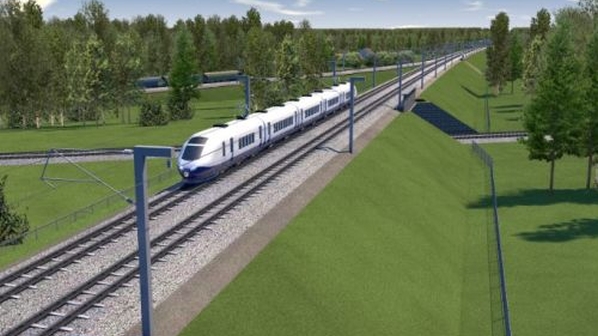Discussions between the Baltic states of Latvia, Lithuania and Estonia regarding the optimal arrangement for the management of RB continue.
Until an optimal, solution is found, EDZL has been empowered to make all required land acquisition purchases for the new line, construction of which is expected to start in the autumn.
In addition, EDZL will also be tasked with the commencement of necessary legal and administrative processes in Latvia for the implementation of a joint infrastructure manager, including advising the government on the implementation of necessary statutes and regulations. EDZL will also prepare to maintain the infrastructure once it is built.
The decision was made to alter EDZL’s role following consultations with various experts, according to a statement made by Mr Talis Linkaits, Latvia’s minister of transport. Linkaits also stated that a unified infrastructure manager will improve the country’s ability to negotiate with its neighbours on the implementation of new infrastructure, and enable a more cohesive approach to maintenance of the railway.
“We need to be able to use the network effectively, and we think that this is best done by tackling common network usage issues together,” Linkaits says.
However, Mr Kaspars Vingris, chairman of EDZL’s management board noted that significant preparations must be made in all three countries before a common infrastructure manager can be implemented.
“The goal is to ensure customer-friendly RB infrastructure is also integrated with other modes of transport,” Vingris says. “To achieve joint management, we will be working closely with RB implementing bodies in Estonia and Lithuania and RB Rail AS.”
EDZL is a state-owned company founded by the Latvian Ministry of Transport in 2014 for the purpose of implementing the Latvian section of the Rail Baltica project.
RB is a €5.8bn joint venture to create an 870km mixed-traffic 1435mm high-speed line from Finland, via ferry, to Estonia, Latvia, Lithuania, and the Polish border. RB is a priority project of the European Union (EU) Trans-European Transport Network (TEN-T). The core section between Tallin, Estonia, Riga, Latvia, and Kaunas, Lithuania, is scheduled for completion by 2025, with a connection to Warsaw scheduled for 2030.

